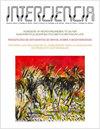减盐研究进展:从倡议到技术创新
IF 0.4
4区 综合性期刊
Q4 ECOLOGY
引用次数: 0
摘要
盐是家庭烹饪和食品工业中使用最广泛的调味品之一。它不仅含有人体必需的微量营养素(钠),而且在食品加工领域是一种重要的安全防腐剂。过量的盐摄入与高血压和其他相关疾病(如心血管疾病和中风)的高患病率有关。减少全体人口的盐摄入量将有助于改善公共卫生。然而,降低食品中的含盐量不是一件简单的事情,而是一项具有挑战性的任务,因为盐不仅影响最终产品的风味和质地,而且在食品的加工和保存中起着重要作用。本文介绍了世界各国的减盐行动和食品中减少钠的不同方法,并进一步总结了用于食品中减少盐的新兴技术。本文章由计算机程序翻译,如有差异,请以英文原文为准。
RESEARCH PROGRESS OF SALT REDUCTION: FROM INITIATIVES TO TECHNOLOGICAL INNOVATIONCTION
Salt is one of the most widely used condiments in the home cooking and the food industry. It not only contains an essential micronutrient for human beings (sodium), but also is an important and safe preservative in food processing sector. Excessive salt intake is linked to the high prevalence of hypertension and other related diseases such as cardiovascular diseases and stroke. A reduction in salt intake across the whole population will be conducive to improvements in public health. However, reducing the salt content in foods is not a simple but a challenging task, since salt not only impacts the flavor and texture of the final products, but also plays an important role in processing and preservation of foods. The present review introduced the salt reduction actions around the world and different approaches for sodium reduction in foods, and further summarized emerging technologies that utilized in salt reduction in foods.
求助全文
通过发布文献求助,成功后即可免费获取论文全文。
去求助
来源期刊

Interciencia
综合性期刊-生态学
CiteScore
0.80
自引率
25.00%
发文量
1
审稿时长
4-8 weeks
期刊介绍:
Interciencia is the monthly multidisciplinary publication of the INTERCIENCIA Association. It is dedicated to stimulate scientific research, its humanitarian use and the study of its social context, specially in Latin America and the Caribbean and to promote communication between the scientific and technological communities of the Americas.
Interciencia has been published uninterruptedly since 1976. Its Founding Director, Marcel Roche (endocrinologist and sociologist of science) was editor until 2008, and thereafter Miguel Laufer (neurobiologist) has been in charge. It has been included since 1978 in the Science Citation Index and other international indexes, and since 2008 it maintains an open access electronic version with material from 2005 onwards.
The priority areas of the journal, without exclusion of other areas, are Agronomy, Arid Lands, Food and Nutrition, Biotechnology, Ecology and Environment, Energy, Innovation and Technology Transfer, Marine Resources, Non-renewable Resources, Science Education, Science Policy, Study and Sociology of Science, and Tropical Forests.
Interciencia publishes in Spanish, Portuguese and English research and review articles, communications and essays, all of which are subjected to peer review. Additionally, it includes non-refereed sections such as Editorial, Letters to the Editor, Open Town Hall, Book Reviews and Upcoming Events.
All the material submitted to the journal for publication and accepted by the Editorial Committee in view of its quality and pertinence is subjected to review by peer specialists in the corresponding fields of knowledge. Neither the INTERCIENCIA Association, nor the journal or the institutions to which the authors belong carry responsibility for the contents. Signing authors are responsible for the material published under their names.
 求助内容:
求助内容: 应助结果提醒方式:
应助结果提醒方式:


